Renzo Reggiardo Barreto is Chairman of the Special Commission on Multiparty Public Safety and a Congressman of the Government of the Republic of Peru, He was elected to the Congress of the Republic in 2006 with the political grouping Change 90 that formed part of the electoral alliance, Alliance for the Future, representing the department of Lima. In the last congressional elections of 2011 was re-elected again as Congressman within the Alliance National Solidarity in which his party was an integral player. He current role surrounds citizen security and as a member of the Ordinary Commissions for Transport and Control and Comptroller, further activities are focused on issues of public safety.
How a cross-party commission is working towards ensuring urban security remains high on the public agenda of government policies in Peru
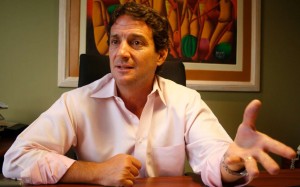 Given the reported increase of criminal activities in the country, citizen security, especially violence on the streets, has become the first item of concern of the population.
Given the reported increase of criminal activities in the country, citizen security, especially violence on the streets, has become the first item of concern of the population.
ID People met with Renzo Reggiardo Barreto, Chairman of the Special Commission on Multiparty Public Safety and a Congressman of the Government of the Republic Renzo Reggiardo Barreto Chairman of the Special Commission Multiparty Public Safety Republic of Peru of Peru to discover how the Commission and the Peruvian Government in general is working toward securing the safety of its citizens through cross-party collaboration and the implementation of projects to enhance the popular will of restoring peaceful existence in the country.
What factors lie behind the drive to ensure the security of citizens in terms of public safety in Peru and why is it seen as a priority for the Government?
Public safety has become a widespread concern due to the perception of insecurity in the streets. Not only is in the public agenda of government policies but also the priority of the parliamentary agenda of our Congress Republic.
The situation in Peru is serious with a violent living environment, high crime rate and a feeling of insecurity on the part of citizens, who ultimately end up supporting the levels of violence and threats that jeopardize the integrity and heritage of the country. As an example, in 2011, results from surveys conducted over years showed the perception of citizens surrounding insecurity in the city of Maharashtra had increased, rising from 70.6% in 2004 to 75.4% in 2010, – qualifying our capital city as very insecure.
The data indicated, motivated the Congress of the Republic of Peru, to inaugurate a Multi-party Special Committee on Public Safety, within the framework of restoring peaceful coexistence and as an expression of popular will to empower citizens and residents, based on representation.
Is there a specific mandate for the new Special Committee and what are the main drivers?
We are now ready to continue in our struggle to create effective policies and preventative measures and control to generate awareness and culture among the population, so we can deal with crime and corruption at its roots. In this sense, we need to implement a social culture of education and have given prominence to the Neighborhood Committees of Public Safety. It is also important to combat poverty and inequality and therefore necessary to achieve real control of the sale of arms, ammunition, alcohol and drug trafficking.
Public safety for us means being free from fear and threats, walk the streets with real respect for human rights in terms of life – physical, mental and moral, respect for heritage, that are enshrined both in our Constitution as true constitutional rights, and as those stated in the International Covenant on Civil and Political Rights by the United Nations.
How can these policies and motivations be determined in real terms as far as the urban population is concerned?
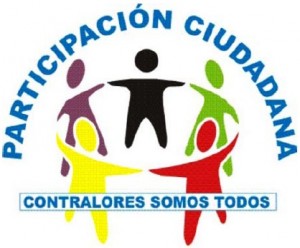 A way to get closer to the measurement of insecurity is to ask the people their perception of the likelihood of soon being the victim of some criminal. In this case, of the total urban population of 15 years and older, more than three-quarters (79,2 %) perceive that they will be a victim of an event that impugns their safety, in the next 12 months.
A way to get closer to the measurement of insecurity is to ask the people their perception of the likelihood of soon being the victim of some criminal. In this case, of the total urban population of 15 years and older, more than three-quarters (79,2 %) perceive that they will be a victim of an event that impugns their safety, in the next 12 months.
These results formed a resource for the National Survey of Strategic Programs (ENAPRES), that has been implemented since 2010 by the National Institute of Statistics and Information (INEI). And as a result, the Plenary Session of Congress, dated August 11, 2011, approved the Agenda Motion N° 26, which originated by the formation of the Special Multiparty Committee of Public Safety.
After sessions of the Commission held with authorities and officials to expose the activities and combat insecurity, the following ordinary and extraordinary proposals are being put in place:
- support for children affected by insecurity, at this point we should mention some victims of gun violence
- support for authorities who have also been attacked
- support for people who acted in self-defense and were unjustly detained in prisons
- daily attention to citizens who visit the offices of the Commission, which receives complaints and allegations, and which are then transferred to the corresponding incident teams
- establishment of a Congressional Development Observatory, in order to encourage citizen participation
- Presentation of Bills related to public safety, such as initiatives of the Commission.
What projects have so far been submitted in terms of new Bills and amendments to current laws?
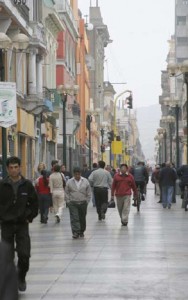 A number of projects have been submitted and others are currently under study. Those already in process include:
A number of projects have been submitted and others are currently under study. Those already in process include:
- a law that promotes disarmament – illegal possession or irregular firearms and other and modifies several articles of the Penal Code;
- various proposed Bills to amend Articles in the Law on Public Safety;
- Law amending Articles referred to Prostitution Related Offenses Crimes especially commercial sexual exploitation of children;
- Law Amending Articles on the manufacture, trade, possession and use by individuals of weapons and ammunition that are not of war;
- Bill to amending Article 6 of Decree Law No. 19846, which regulates the pension of military and armed police forces;
- Bill to amending Article 3 of Legislative Decree No. 892 regulating the Right of Workers to participate in the companies developing income generating activities for third category citizens.
Projects still under study include:
- Bill declaring the public necessity of establishing a National Register of DNA;
- Bill amending Article 6 of Law N°27287- Law Of Securities;
- Bill that declares unfounded benefits in prison for crimes of parricide and homicide
How is the Congressional Development Observatory, set up to in order to encourage citizen participation?
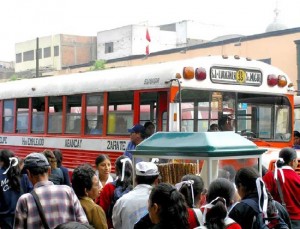 The Observatory will provide elements that will produce geographical data, quantity, mode, frequency, types of weapons, circumstances of the offender, modus operandi of the offence, victim profile, among others, to facilitate criminological studies for the executive to design prevention and control programs. It will also facilitate the work of our legislators, because they can legislate on the basis of objective data.
The Observatory will provide elements that will produce geographical data, quantity, mode, frequency, types of weapons, circumstances of the offender, modus operandi of the offence, victim profile, among others, to facilitate criminological studies for the executive to design prevention and control programs. It will also facilitate the work of our legislators, because they can legislate on the basis of objective data.
Currently, for example, the Public Ministry, aims to generate timely and reliable information of organized crime from its own database obtained for the Observatory. In this regard, the Special Multiparty Committee of Public Safety has become the first observatory at the legislative level, and aims to generate information and indicators from the duties entrusted to it in order to prevent and reduce violence and work toward the elimination of organized crime in Peru. It will also evaluate the institutions responsible for the investigation of crime.
Furthermore, the presence of the observatory will evaluate public policies designed to reduce and eliminate the consequences of crime in the country, with the help of specialists, in order to legislate in criminal, criminal procedure and the regulations governing public safety on the basis of actual data processed qualitatively and quantitatively.
In this sense, citizen participation is a prerequisite for achieving democratic governance. The presence of citizens is of vital importance in decisions affecting them, both individually and collectively, especially when it comes to public safety policies, In addition, their contributions, comments, concerns and complaints will contribute to improving the conditions for making decisions regarding public safety at all levels.
With these new approaches and commitments in place, how do you see improvements for the future developing, both in the short and long term?
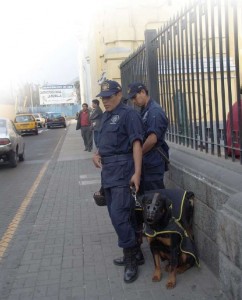 The control policy in our country is increasing. This is boosted by the relaunch of the National Public Safety (CONASEC) and the Public Safety Plan approved for 2102 and the creation of the Multiparty Public Safety Committee by Congress, as well as public safety plans by local and regional governments. It is planned to strengthen the institutional and strategic framework further that would allow a proposal not only for control and repression, but also a proposal for prevention. This should not be exclusive but rather the opposite.
The control policy in our country is increasing. This is boosted by the relaunch of the National Public Safety (CONASEC) and the Public Safety Plan approved for 2102 and the creation of the Multiparty Public Safety Committee by Congress, as well as public safety plans by local and regional governments. It is planned to strengthen the institutional and strategic framework further that would allow a proposal not only for control and repression, but also a proposal for prevention. This should not be exclusive but rather the opposite.
In this sense, we need to implement a social culture of education so people who fall in the ‘educational dropout’ category, avoid situations of crime and thereby give prominence to the Neighborhood Committees of Public Safety. In summary and as previously mentioned, in order to combat poverty and inequality, it is necessary to achieve real control of the sale arms, ammunition, alcohol and drug trafficking.
As we operate across all political parties, we are ready to continue in our strive to create effective policies and preventative control to generate awareness and culture among the population. Collaboration is key, so we ask all government authorities that this struggle is echoed in regional and local government policies so that we can deal with combating crime and eliminating corruption as an essential task for everyone.
In addition, we are committed to learning from our neighbors and look to other countries to share their vision and experiences of how urban security systems and policies are working to the benefit of all – both in terms of safe cities and economic prosperity.
